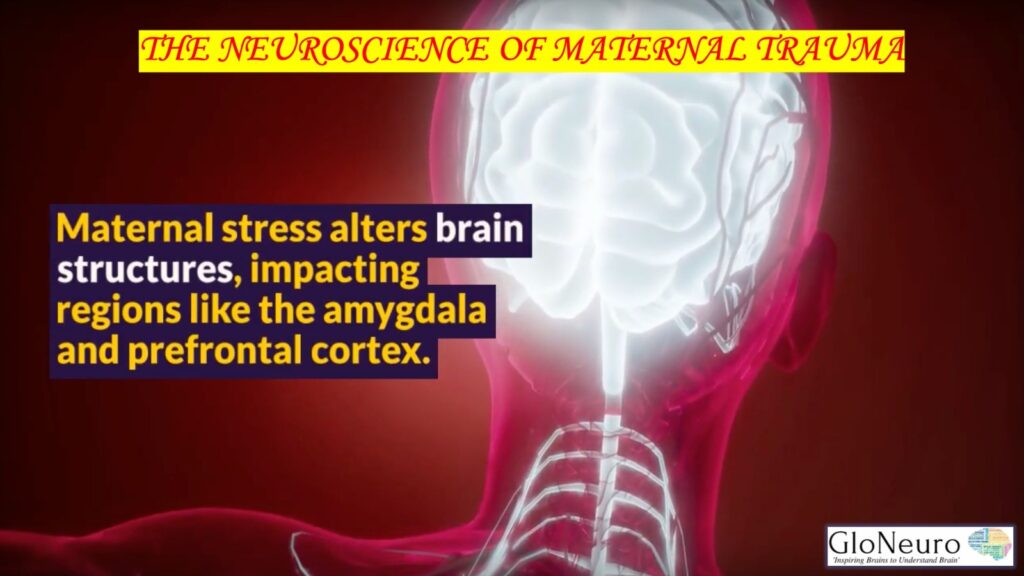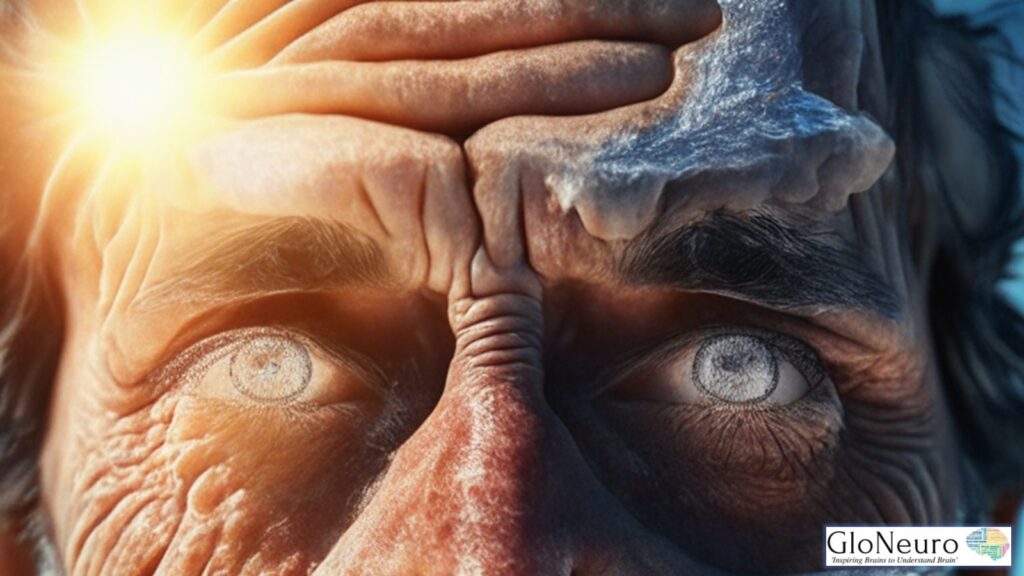August 1, 2023
Author: Ritika Bhardwaj
Editor: Dr. Jitendra Kumar Sinha
Welcome to GloNeuro’s latest blog where we embark on a riveting journey into the captivating realm of neuroscience. Today, we delve deep into the profound connection between maternal trauma and its enduring impact on the mental health of offspring. Prepare to be intrigued as we unravel the intricate web of neurobiological mechanisms that intertwine a mother’s emotional well-being during pregnancy with the future development of her child’s brain. From epigenetic alterations to cortisol imbalances and beyond, join us as we explore the fascinating world where early-life experiences leave an indelible mark on the very fabric of our minds. Discover how understanding this hidden nexus holds the key to fostering healthier generations and paving the way to a more compassionate future.
Motherhood is a powerful and transformative period, where a mother’s emotional well-being plays a crucial role in influencing her child’s development. Emerging research has shed light on the intricate link between maternal trauma and its long-term impact on offspring’s mental health, offering valuable insights into the lasting effects of early-life experiences on the developing brain.

Maternal trauma encompasses a range of negative experiences, from physical abuse to psychological strain or catastrophic events. Scientific studies have revealed that such trauma can adversely affect both the mother and the developing fetus, with the fetus’s brain being remarkably susceptible to the mother’s environment. Stressors faced by the mother during pregnancy can significantly influence the newborn’s brain development, extending the connection between mother and child beyond the physical bond to encompass emotional and neurological aspects.
From a neuroscience standpoint, the impacts of maternal trauma are far-reaching and complex:
- Epigenetic Alterations: Maternal trauma can induce epigenetic modifications in stress-response genes, rendering children more vulnerable to stress. These changes may influence the management of stress responses, emotional regulation, and other critical neurological processes, increasing the likelihood of mental health issues.
- Cortisol Imbalance: The release of the stress hormone cortisol in response to maternal stress can be detrimental to the developing fetal brain, potentially affecting neuronal circuits involved in emotional control and stress responses.
- Effect on Brain Structure: Studies in rodents have shown that maternal stress can lead to changes in brain structures, particularly in regions like the amygdala, prefrontal cortex, and hippocampus. These alterations in cortical thickness and functional connectivity have been associated with various psychological disorders, including schizophrenia, autism, and dementia.
- Stress Reaction and Neuroendocrine Dysregulation: Maternal trauma can cause long-term dysregulation in the offspring’s stress response system, such as the hypothalamic-pituitary-adrenal (HPA) axis. This dysregulation may manifest as altered cortisol levels, reduced stress tolerance, and increased susceptibility to mood disorders and anxiety.
- Trauma Transmission Across Generations: The impact of maternal trauma extends beyond direct consequences on offspring. Research suggests that these impacts can be transmitted across generations through epigenetic modifications, influencing the mental health of future generations.
The long-term mental health consequences in those exposed to maternal trauma include an increased likelihood of experiencing depression, anxiety, and a higher susceptibility to PTSD after traumatic experiences. Cognitive impairments may also arise due to changes in brain structure and epigenetic alterations, affecting learning and memory functions. Despite the serious consequences, the brain’s remarkable resilience and neuroplasticity offer hope. Positive and loving experiences can mitigate the impact of early-life adversity on brain development and mental health. Supportive therapies, early interventions, and resilient social networks play pivotal roles in fostering resilience among those who have experienced maternal trauma.
For better therapies and future directions, understanding the relationship between maternal trauma and offspring’s mental health is paramount. Tailored interventions, including trauma-informed treatment for pregnant women and early intervention programs for children, have the potential to mitigate detrimental effects and break the cycle of intergenerational trauma. Delving into these pathways could also pave the way for identifying novel treatment strategies for managing mental health illnesses across generations.
In conclusion, the complex link between maternal trauma and offspring’s long-term mental health highlights the crucial importance of prioritizing the mother’s mental well-being during pregnancy and beyond. Studying the neurobiological mechanisms at play can lead us closer to nurturing healthier generations and breaking the chains of intergenerational trauma through comprehensive care and support for mothers. This growing body of neuroscience knowledge underscores the significance of fostering a compassionate and informed society, dedicated to nurturing the mental health of mothers and their offspring alike.
References
- ⦁ Tu, HF., Skalkidou, A., Lindskog, M. et al. Maternal childhood trauma and perinatal distress are related to infants’ focused attention from 6 to 18 months. Sci Rep 11, 24190 (2021). https://doi.org/10.1038/s41598-021-03568-2
- ⦁ Plant, D. T., Jones, F. W., Pariante, C. M., & Pawlby, S. (2017). Association between maternal childhood trauma and offspring childhood psychopathology: mediation analysis from the ALSPAC cohort. The British journal of psychiatry : the journal of mental science, 211(3), 144–150. https://doi.org/10.1192/bjp.bp.117.198721
- ⦁ Qiu, A., Rifkin-Graboi, A., Chen, H. et al. Maternal anxiety and infants’ hippocampal development: timing matters. Transl Psychiatry 3, e306 (2013). https://doi.org/10.1038/tp.2013.79
- ⦁ Fitzgerald, E., Parent, C., Kee, M. Z. L., & Meaney, M. J. (2021). Maternal Distress and Offspring Neurodevelopment: Challenges and Opportunities for Pre-clinical Research Models. Frontiers in human neuroscience, 15, 635304. https://doi.org/10.3389/fnhum.2021.635304
- ⦁ Hjort, L., Rushiti, F., Wang, S. J., Fransquet, P., P Krasniqi, S., I Çarkaxhiu, S., Arifaj, D., Xhemaili, V. D., Salihu, M., A Leku, N., & Ryan, J. (2021). Intergenerational effects of maternal post-traumatic stress disorder on offspring epigenetic patterns and cortisol levels. Epigenomics, 13(12), 967–980. https://doi.org/10.2217/epi-2021-0015
Explore New Articles from GloNeuro



